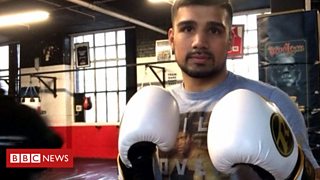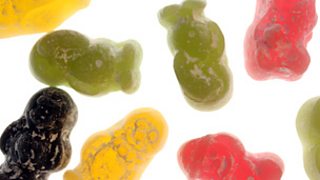My jewellery could save my life — why this student can’t leave home without a bracelet
23 March 2018
When we leave the house we all reach for our keys, wallet and phone. These are the essentials most of us will, hopefully, remember.
But every time 19-year-old Hayley Argyle nips out, she has to remember an item that’s even more important — a bracelet.
Hayley has type 1 diabetes and wears the special bracelet which is inscribed with her name and condition.
“Even on a night out it’s in the back of your head that you’ve got to have your ID bracelet”, she explained.
Hayley is one of 400,000 people in the UK living with type 1 diabetes.
It’s a serious autoimmune condition, where the body is unable to produce insulin. Complications from the condition can affect the eyes, heart, kidneys and nerves.
Hayley’s ID bracelet is a simple yet potentially lifesaving aid. It could help in the event of her suddenly becoming unwell, if her blood sugar becomes too high or too low.
She advises that it’s best to be upfront about diabetes.
“It’s very important for people around you to know how to test your blood sugar or give you an injection if you’re ever unable to.”
But there may come a time when Hayley will need to rely on the kindness of strangers, and that’s the point of the bracelet.
“Most people with a condition will have one of these. If someone were to collapse on the street always check, some people have a necklace, I have a bracelet. It’s always worth checking because that can really help the situation massively.”
How type 1 diabetes affects lives
-
![]()
Amber McGrath will spend the rest of her life monitoring her blood glucose level constantly.
-
![]()
The first trial of a pioneering therapy to slow the advance of type 1 diabetes has shown it is safe.
-
![]()
What happens when you have type 1 diabetes and misuse insulin in order to dramatically lose weight?
-
![]()
Muhammad Ali, 24, has type 1 diabetes and wants the British Boxing Board of Control to allow him to fight.
What to do in a a diabetic emergency
-
![]()
St John’s Ambulance advice on how to deal with attacks of hyperglycaemia and hypoglycaemia.
Latest features from ≥…»ÀøÏ ÷ Scotland
-
![]()
'Wild swimming helps me process the grief of losing my son'
The benefits of cold water therapy.
-
![]()
Winter adventures are appealing, but an expert advises caution
Trips in winter require particular knowledge and skills.
-
![]()
The rescuers: Why volunteers risk their lives in mountain emergencies
Landward meets members of the Cairngorm Mountain Rescue Team.
-
![]()
‘Look for the light’ – practical tips to help you through another winter with SAD
Useful advice and tips to combat low moods at this time of year.
-
![]()
How you could be a binge drinker without even knowing
Binge drinking is classed as fewer units than many people may realise.
-
![]()
How chocolate biscuits and drama classes helped one man leave prison behind
The healing power of creativity.
-
![]()
'When people believe in you, it’s life-changing'
Author Graeme Armstrong revisits the man who helped turn his life around.
-
![]()
The 'breath-taking' display of US birds swept on to British soil
Recent storms have brought rare birds to our shores.
-
![]()
Six things we learned about Alan Cumming on Take the Floor (Spoiler: includes accordions)
The actor spoke to Take the Floor's Gary Innes.
-
![]()
How street gangs trap young men in a dangerous cycle of violence
The almost inescapable pull of life in a gang.
-
![]()
Why stylist Gok Wan believes there's no such thing as bad fashion
The fashion expert says we should stop following rules and do what feels right.
-
![]()
Is sending a CV still the right way to apply for a job?
They've been central to job applications for years, but are they worth it?




















